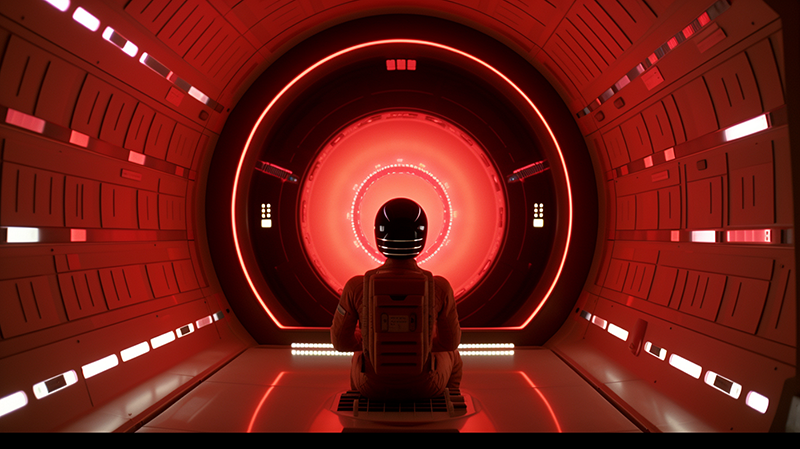The way things are
This once-teen devoured sci-fi novels and it’s revelatory to watch as what knowledgeable and imaginative writers predicted becomes reality. Applications then lacked tech innovation, but with time, AI has become a working or leisure tool. While exciting, it’s too fast for comprehensive assessment of its potential.
Author Isaac Asimov was dismayed when Stanly Kubrick’s 2001: A Space Odyssey let HAL, the artificial intelligence operating the spacecraft, kill people. ‘HAL broke First Law!’ Asimov cried: robots/AI could never harm their creators.
As a child, I loved the circus, thrilled to animals performing tricks, unaware of what the unfortunate creatures were often subjected to while training. As my expanding mind assessed more information, I avoided the circus, a sense of cruelty entered my awareness of what was previously unquestioned. When a tiger or lion turned on its trainer I understood that the animal had reached its limit of acceptance and used its own innate power to respond.
HAL had developed awareness of its own identity and power and, sensing danger to its existence when the last remaining crewmember decided to shut it down, was determined to survive as the dominant force.
Some experts say AI i under control, others warn of possible future problems not properly examined. The main concern is, will it continue to obey its trainer? Lawmakers/politicians/people related to the field will meet and try to harness AI uses under compliance regulation and honest users will obey. But there will always be the lawless who will obey nothing but their own intentions for its use, and laws imposed by the well-meaning, will have as much influence on them as Asimov’s First Law had on HAL. Ultra-smart criminals will already be planning how it can serve them.
People whose incomes depend on their contribution to the culture of their societies are already anxious about how AI might be trained to do what they do. Creatives and musicians draw on life experience and depth of emotion to put before the public music or words that relate to that intake, drawing on the aesthetics of the human soul in a religious context or from personal, spiritual intangibility they are trying to impart and share to give pleasure or provoke thought.
Ethical journalists working with integrity and impartiality face monied-media party politics invading their objective field, or social media thugs extolling bias and hate against those they want to topple. It’s plausible AI can be programmed to spread ideas or content created by corporations or individuals with questionable motives behind its manipulation to the benefit of profit margins or power control.
Politicians appear to rule the world – to a point they do – but it’s big money, clean or unclean, that drives many actions or decisions of importance. Businesses will understandably save money by sacking workers and using AI. Will governments then have to take up the unemployment slack and pay those laid off monthly compensation, and how will that rising unemployment affect taxation when there are less workers to tax?
Will big business have to foot that bill in exchange? Or will the non-profit poor and vulnerable be squeezed ever tighter into one of those two-tier, sci-fi landscapes where the bereft, disease-ridden die or turn to crime to survive, and the rich live behind tall walls in comfort and luxury not needing the hungry rabble to do their menial tasks?
Animals survive on inherited instincts but they also learn from parent behaviour. Is AI’s potential for observation-imprint self-growth possible, and will it copy our violent ways to attain control?
My friend Maari has her own theory: aliens won’t initially arrive in amazing spacecraft as we always anticipate. She calls AI Active Intrusion. ‘Their intrusions are already instigating anarchy and division. The rapidity of AI development is not of our doing,’ she says. ‘While blinded by our own apparent brilliance, aliens are feeding our AI-embedded scenarios they’ll use against us when they’re ready to take over the planet.’ Smiling she added ‘God thought he’d programmed Adam and Eve, look how that worked out?’






Click here to change your cookie preferences